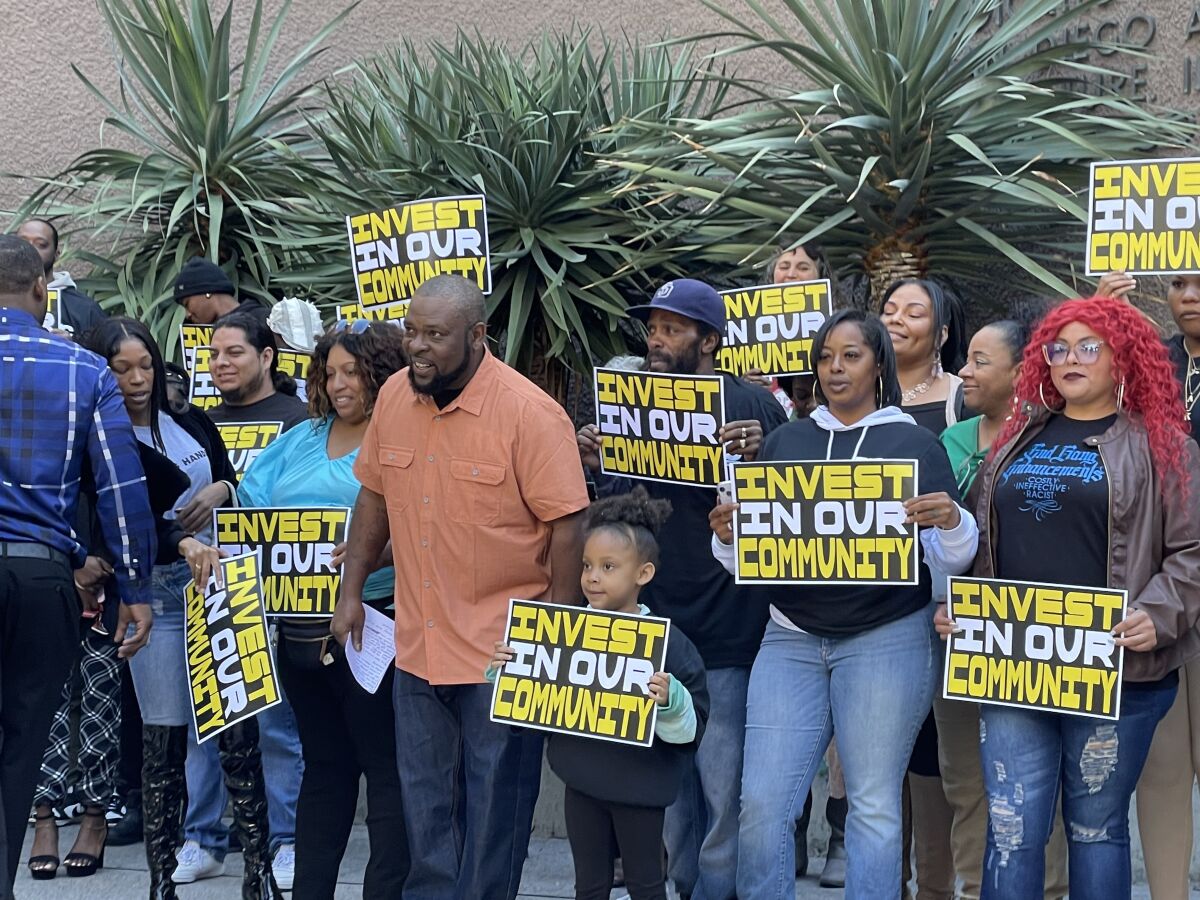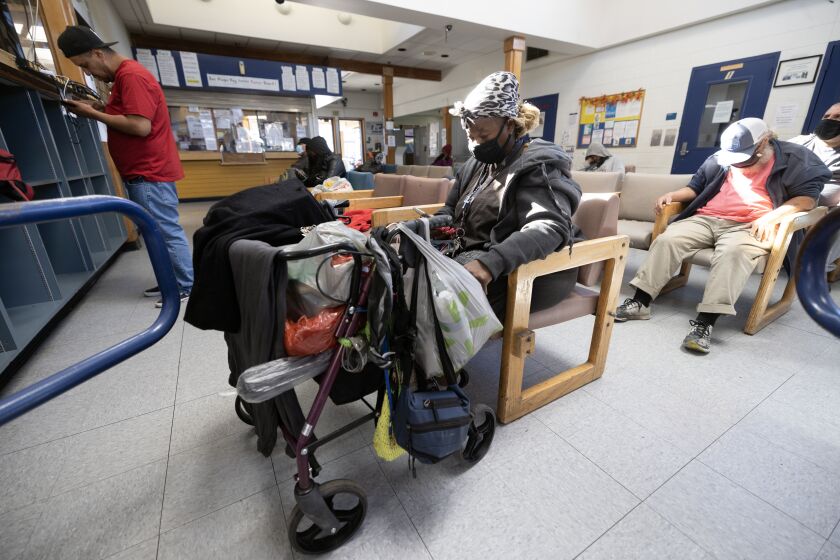
Groups from both neighborhoods came together Thursday to call on city leaders to include $3 million to fund two centers for youth and young adults in next year’s budget.
Raised in the Stockton neighborhood in southeastern San Diego, Memee Hernandez was just 12 years old when she joined a gang and 16 when she had her first child.
In neighboring Mountain View, Lanell Brown has lost neighbors, friends and family — including his only brother — to gang violence.
Now, both are working to give others in their underserved communities the resources and opportunities they need to be spared those hardships — Hernandez with PHATCAMP, the girls’ sports program she founded, and Brown with his nonprofit Giving Hands, which provides educational programs to Mountain View youth.
“We are violence interrupters,” Brown said. But “in order for this area to thrive and prosper, we need you to invest and believe in us.”
On Thursday morning, Hernandez, Brown and other community advocates gathered outside the San Diego Administration Building to call on city leaders to do just that.
They want the city to fund two youth and young adult drop-in centers in Districts 4 and 8 — home to some of the city’s highest concentrations of violence and poverty — to help curb violence before it occurs.
The centers would offer a safe place for young people to go in their own communities, with supervision and resources including job-skills training, housing assistance, mental health services and more, said D’Andre Brooks, a commissioner with the San Diego Gang Commission on Prevention and Intervention.
“These are simple examples of major needs that our community is lacking,” Brown added.

San Diego cutting hours of county’s only drop-in center for homeless people
A youth care and development program was included as a priority item in the February independent budget analyst’s report for the city council’s proposed 2024 fiscal year budget. The draft budget will be released next month.
That program, supported by five council members, would boost resources focusing on mental health, job training and after-school education. Four members proposed $3 million be allocated toward these efforts.
Community leaders want that funding to be split between the two proposed drop-in centers as a line item in the city budget so that the funds are secured each year.
Those leaders haven’t always been aligned — some are former members of rival gangs affiliated with the Crips and the Bloods — but they came together in solidarity Thursday under a common goal.
“You would never see something like this (normally),” said Cheri Hampton, founder of Issa Vibe, which connects people with mental health and other support services. “But the drop-in centers will bring unity to southeastern San Diego.”
Advocates say they’ve already been working in the neighborhoods to provide these services, but with city funding, they can create a permanent resource.
Local school official taking over new San Diego agency focused on youth resources, child care
“We have already done so much in our community just to make the difference, often out of our own pockets,” Hampton added. “This situation is definitely personal to us … If given the full financial support, imagine what we could do with the coordinated effort.”
Laila Aziz, director of operations at Pillars of the Community, a Muslim faith-based community organization that advocates for southeastern San Diego, says such evidence-based programs could also help give formerly incarcerated community members a way to come back into their neighborhood and share the positive work that rehabilitated them with youth.
“We need to hire within the community to make this work, people that can relate to make this mission personal, because we want better for our children, your children and our families,” Hampton said.



